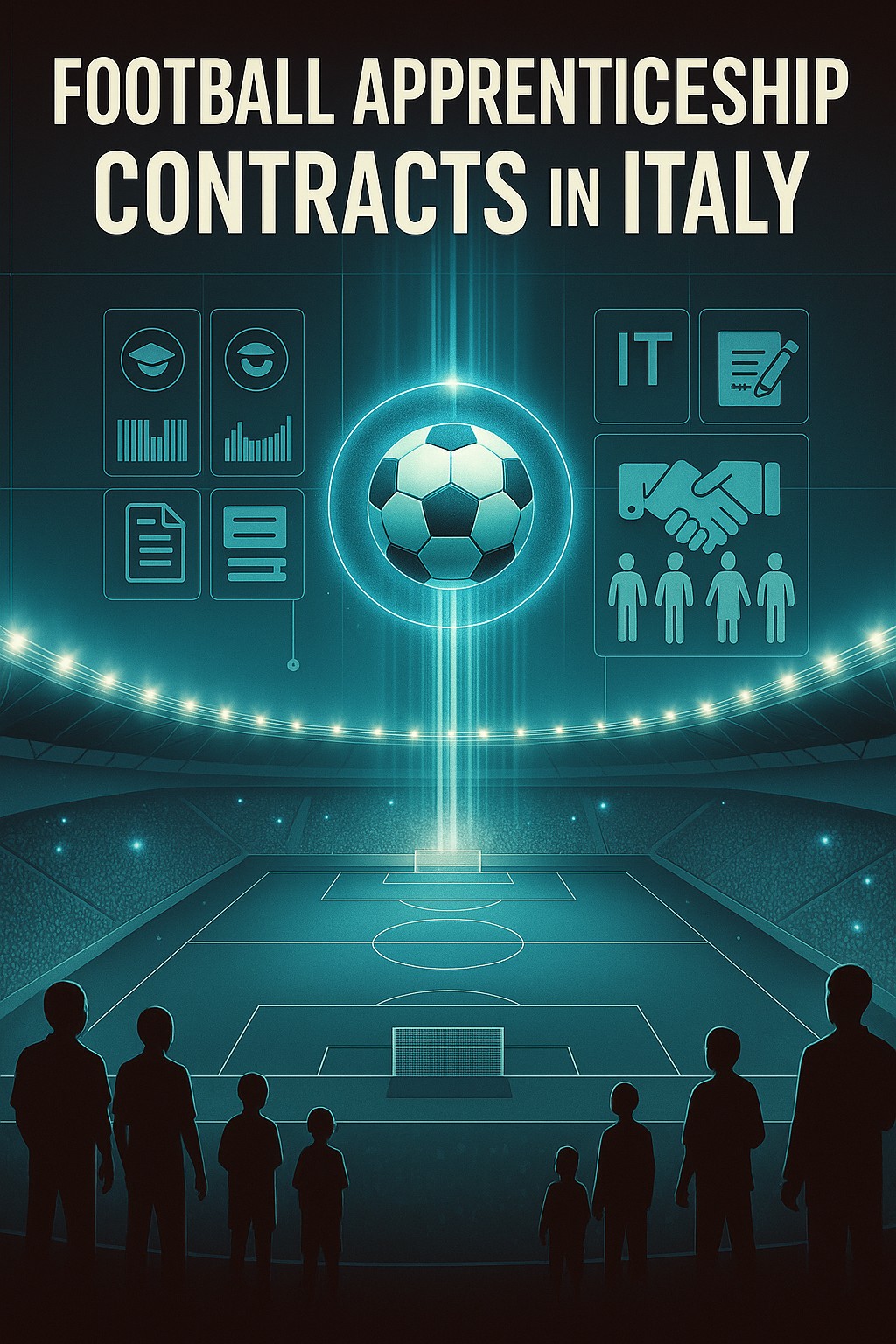FOOTBALL APRENTICESHIP CONTRACTS IN ITALY

Legislative Decree No. 36 of 2021 has introduced apprenticeship contracts into the sports sector and represents one of the most significant innovations of the Sports Reform in Italy.
Its primary purpose is to remedy a long-standing structural weakness of the Italian system: the lack of adequate safeguards for the many promising young players who, despite their potential, are unable to secure a stable career in sport. The model seeks to strike a balance between the interests of clubs and players by providing a contractual framework that is both flexible and strictly regulated, complemented by a tailored training plan and adequate guarantees.
Article 30 of the Decree allows clubs and sports associations to conclude agreements with young athletes, combining their sporting development with cultural and vocational training. The underlying rationale is that of a dual-track system: on the one hand, the employer’s ordinary obligations under an employment relationship; on the other, a specific duty to provide the apprentice with educational and professional training.
From the perspective of Italian association football clubs, in particular, the benefits extend beyond the educational function: the fiscal and social security advantages linked to apprentice status may substantially reduce labour costs and enhance workforce planning. If implemented responsibly, the apprenticeship may serve not only as a tool for player development, but also as a strategic instrument to promote financial balance and long-term sustainability within the football system. The decisive challenge, however, lies in its effective and coherent application: only through consistency and proper management can this reform be transformed into tangible progress.
The need for reform arises from structural issues that have affected the Italian sports sector for decades. A significant number of athletes, upon conclusion of their often short-lived careers, find themselves unemployed and without an alternative pathway. Only a minority achieve earnings sufficient to guarantee long-term financial security. This situation is compounded by the fact that many young athletes dedicate themselves exclusively to sport, neglecting education or vocational training.
A particularly pressing concern relates to the level of education among young athletes, including footballers. The intensive time commitment required by training and competitions frequently undermines their academic development, increasing the risk of educational neglect precisely during the years in which future opportunities are shaped. Consequently, many athletes conclude their sporting careers without a proper qualification or transferable skills for the labour market.
In recent years, however, Italy has developed several initiatives to mitigate this gap and to integrate sporting careers with education. Some secondary schools have introduced “sports-oriented” curricula offering flexible schedules and personalised study plans for student-athletes. Dedicated licei sportivi supports high schools) have been established, and cooperation protocols between the Ministry of Education and the Italian National Olympic Committee (CONI) support young talents through academic programmes adapted to their sporting commitments. Additionally, certain sports federations cooperate with universities to promote so-called “dual career” programmes, enabling athletes to pursue academic or vocational training alongside their sporting development.
Although still uneven and fragmented across the national territory, these initiatives mark a significant step towards reducing school drop-out rates and ensuring that athletes have realistic alternatives once their sporting careers come to an end. Within this framework, the apprenticeship contract can become a crucial instrument, integrating athletic training with cultural and educational growth.
The Sports Reform in Italy, although long-awaited and necessary, has not been without implementation difficulties. As often occurs in sport, the gap between legal design and practical enforcement has proved to be challenging. Today, the responsibility for transforming this mechanism into a genuine opportunity lies not only with legislators and federations but, above all, with clubs and players’ associations, who will ultimately determine whether these reforms translate, in practice, into effective progress.
We advise on all aspects, including disputes, of sports employment agreements in Italy, including apprenticeship agreements, especially in association football, and further information is available from the Head of our Italian Law Practice, Avv. Sara Botti, who also coordinates our Milan Office, by emailing her at botti@valloni.ch.